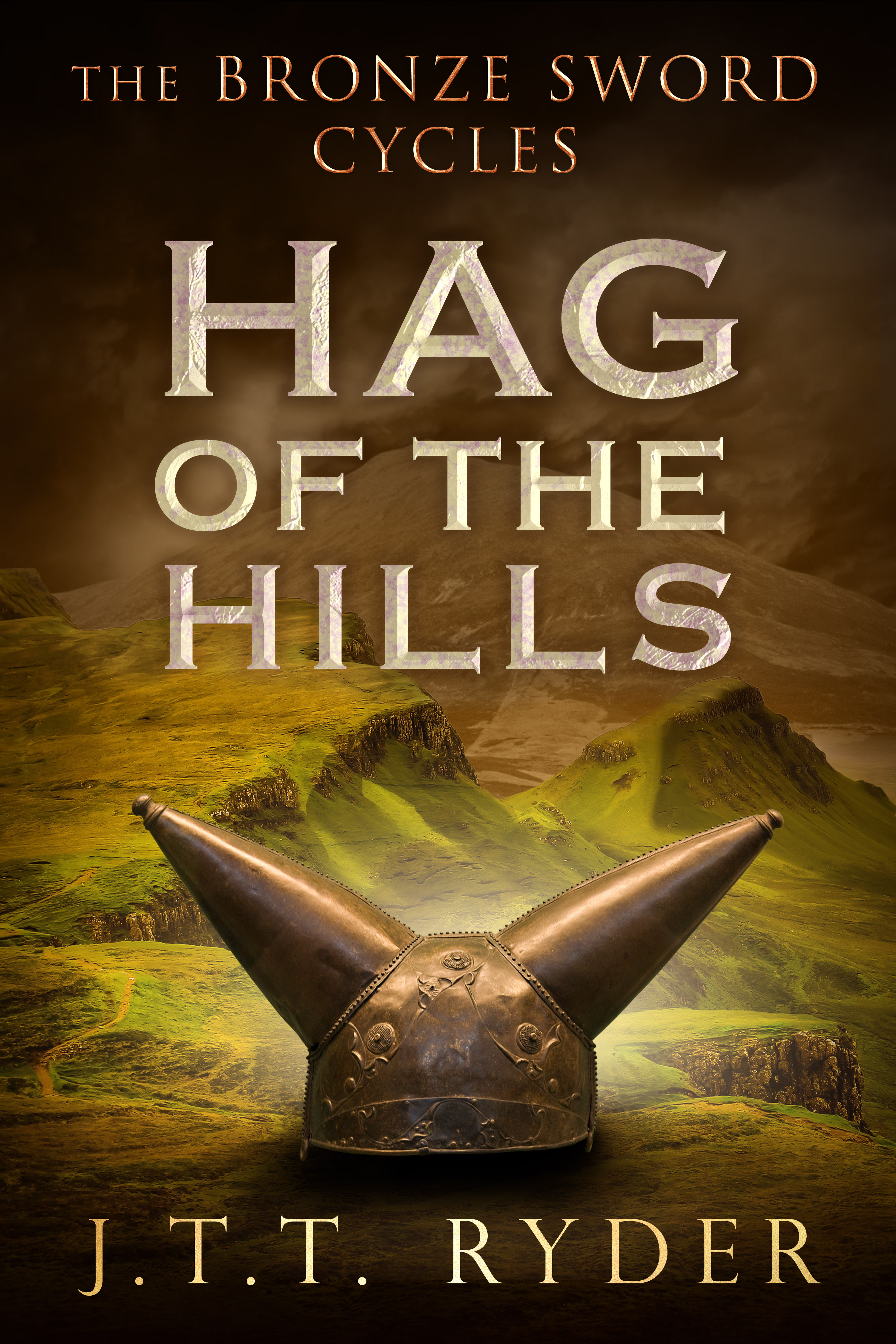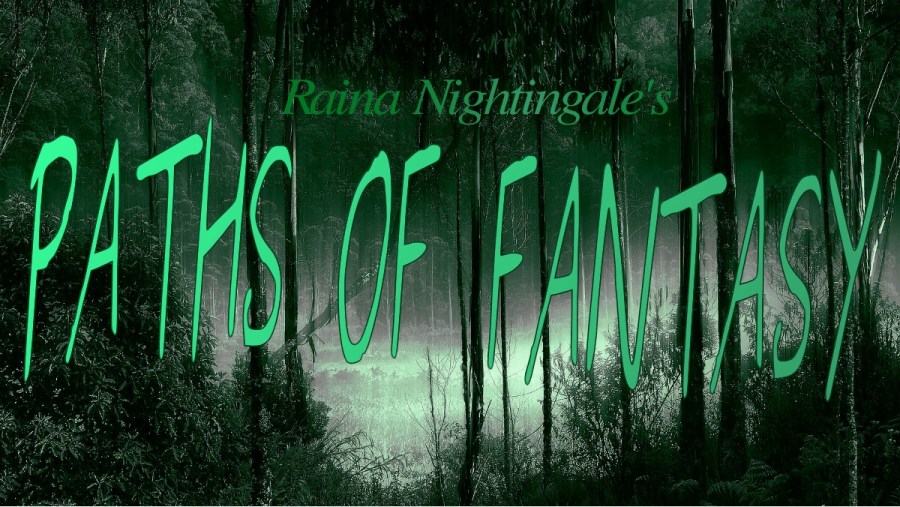Hag of the Hills
 Series: The Bronze Sword Cycles, #1
Series: The Bronze Sword Cycles, #1
Author: J.T.T. Ryder
Genre: Historical Fantasy
Book Description:
Nothing is unconquerable; even our gods can die.
Brennus is destined from birth to become a warrior, despite his farmer’s life. But when the Hillmen kill his family and annihilate his clan, he swears to avenge those he loved.
Brennus must survive endless hordes of invading Hillmen and magic-wielding sidhe, aided by only a band of shifty mercenaries, and an ancient bronze sword.
Failure means his family and clan go unavenged. Victory will bring glory to Brennus and his ancestors.
Hag of the Hills is a historical fantasy novel set in 200 B.C. on the Isle of Skye, steeped in Celtic mythology and culture.
Review:
The shortest thing I can say is, this novel feels quite a bit more grimdark than my tastes run to. I expected I would likely have mixed feelings about the book, but I picked it up at the recommendation of someone else, as I am interested in immersing myself and exploring stories that are not shaped by the modern western world-view, and I had heard that this was one of them.
To a degree, that is true. The supernatural is simply part of the world, though not all see it equally. And the attitude towards death and suffering is presented in a matter-of-fact way, that is not infected by an overt effort to differentiate it from other attitudes, more common these days. The way emotions and attitudes are spoken of, by the gods’ names, as if they are the gods within those who experience them, was apt. I liked how no effort is made to explain these presences and attitudes in other terms than their own.
Nonetheless, it fell flat. This may have been in part the fault of the characters, who very often fell flat. It’s told in the 1st person, narrated by a character who can be very short-sighted when it comes to other people, and even himself, so I don’t expect to see the characters too clearly. But I’ve read other, similar 1st person narratives, where you get quite a clear feeling that the other characters are quite complicated, and maybe quite other than the point-of-view character perceives them, without the character ever acknowledging it, so I know it can be done. This one lacked that. It was as if they – especially the women – were cardboard cutouts. And I can get it, Brennus thinks of women as cardboard cutouts who have no agency, even in their own emotions, but I think there should have been places where, as a reader, we can see his perception doesn’t really line up, even though we’re looking through his perspective.
Even Brennus himself fell flat. There’s plenty of complexity, but it felt to me like a studied complexity, not a living one with heart in it. It felt as if the complexities, the cultural attitudes, the views about the world, the complex and sometimes contradictory character and feelings of Brennus, are not things the author feels in his bones, but things he’s trying to accurately represent from afar. (And, no, I don’t mean that I think Brennus acted out-of-character. I’m not trying to imply that at all; what appear contradictions to others, and maybe even from within, are often part of character.)
At any rate, it did not give me a door through which to explore this world of other feelings, other attitudes, other ideas – this world where many things we say and hear every day are nonsense that no one would ever think of. I found no depth from which to feel, to know the attitudes from within. To see them as a living world. (Though I must mention I like how Brennus stood up to the Cailleach and refused to kill his friend.)
That doesn’t mean it wasn’t at all thought-provoking. An example that comes readily to mind is a conversation Brennus has with some of his companions, and remembers a conversation from his childhood, where his father – I think it was his father? It’s been a while since I read it – tells him that learning to read, that recording things in writing, dulls the mind and the memory.
That came alive to me, and I liked the way the story does not imply that what’s often called “progress” must be seen that way from perspectives other than its own. Instead, it provokes one to ask: what if it isn’t? How much might we lose through it? How much of how we see the world is shaped by our beliefs about it, and the way our minds are trained? What do we lose in the pursuit of civilization and the skills that serve it?
I also enjoyed the way the story is told. The style of the main character’s narration as he is telling the story was a big jarring the first one or two times I ran into some of the shifts in how he tells it, but after that, I came to rather enjoy the changing rhythm, perspective, and poetry of it than otherwise.
I should note that I had to skim the book a great deal, as it goes into gory details fairly often. In some cases, skimming properly was rather difficult, as the details of the combat and the fighting – or other things as well – were interwoven with other elements of the story. This is, for me, a major factor, and while I don’t take back any of what I said on account of it, it definitely interfered with my reading and is adequate reason for me to neither re-visit this book, nor read the next one. But it is very dark in other ways as well, and it lacks the light, the heart, and the sensitivity to make that darkness beautiful to me.
